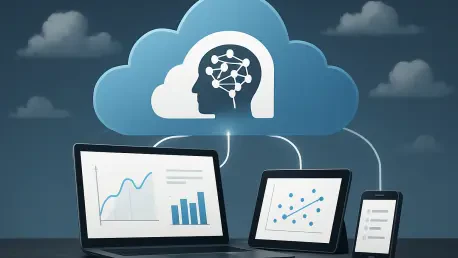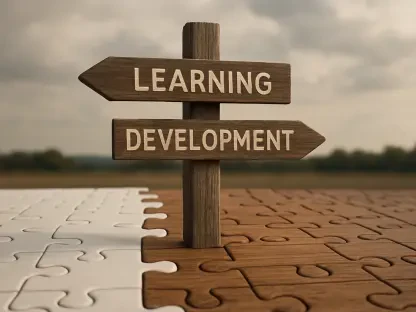The rapid integration of artificial intelligence (AI) into education has sparked both excitement and concern across academic institutions worldwide, with over 60% of higher education institutions already implementing AI tools for various purposes. The potential to revolutionize teaching and learning is undeniable, yet so are the risks to academic integrity. This report delves into how AI can transform education by personalizing learning experiences and streamlining assessments, while also addressing the pressing need to maintain honesty and fairness in academic environments. The balance between innovation and ethical standards remains a critical challenge for educators and administrators alike.
The Role of AI in Modern Education
Artificial intelligence is reshaping the educational landscape by offering tools that enhance the way students learn and teachers instruct. From adaptive learning platforms to virtual tutors, AI is enabling a shift toward more tailored educational experiences that cater to individual student needs. Beyond personalization, AI is also streamlining administrative tasks such as grading, allowing educators to focus more on teaching than paperwork. This technological advancement signals a new era where efficiency and engagement can coexist in classrooms.
Major players in this space, such as Turnitin, have been pivotal in driving AI adoption while emphasizing the importance of maintaining academic standards. Emerging technologies, including AI-powered student engagement tools, are further expanding the possibilities for interactive learning environments. These innovations are not just supplementary but are becoming integral to how educational content is delivered and assessed, marking a significant shift in traditional teaching models.
Opportunities and Innovations in AI for Education
Emerging Trends and Benefits
One of the most promising trends in AI for education is the rise of adaptive learning platforms that adjust content based on a student’s progress and comprehension level. These systems ensure that learners receive support precisely where they need it, fostering a more inclusive environment for diverse student populations. Additionally, AI-driven tutoring systems are providing round-the-clock assistance, simulating one-on-one interactions that were once limited by time and resource constraints.
Another area of innovation lies in tools designed to boost student engagement through gamification and interactive content. Such tools not only make learning more enjoyable but also improve retention rates by aligning with modern digital habits. For educators, AI offers opportunities to refine teaching methods by providing real-time feedback on student performance, enabling more effective instructional strategies.
Accessibility also sees a significant boost through AI, as language translation and speech-to-text features break down barriers for students with disabilities or non-native speakers. This opens up new avenues for global education, ensuring that learning is not confined by linguistic or physical limitations. The potential for AI to democratize education is vast, promising a future where quality instruction reaches every corner of the globe.
Growth and Impact Data
Recent data highlights the accelerating adoption of AI in higher education, with usage rates climbing steadily over the past few years. Studies indicate that nearly 70% of colleges and universities have integrated AI tools into their systems as of this year, a trend expected to grow by 15% annually from 2025 to 2027. This rapid uptake reflects a broader recognition of AI’s capacity to enhance both teaching and learning outcomes.
The impact of this growth is evident in measurable improvements, such as a reported 20% increase in student performance in subjects supported by AI tools. Educators also benefit from efficiency gains, with automated processes reducing time spent on administrative tasks by up to 30%. These statistics underscore the transformative power of AI when applied thoughtfully within academic settings.
Looking ahead, the scalability of AI solutions promises to further amplify these benefits, particularly as costs decrease and accessibility improves. Projections suggest that by integrating AI more deeply into curricula, institutions could see long-term gains in student retention and graduation rates. This data paints a compelling picture of AI as a cornerstone of future educational frameworks.
Challenges of Integrating AI in Education
Despite its potential, the integration of AI into education comes with significant hurdles that must be navigated carefully. Ethical concerns, such as the risk of bias in AI algorithms, pose a threat to fairness in assessments and student evaluations. Additionally, data privacy remains a critical issue, as the vast amounts of personal information processed by AI systems could be vulnerable to breaches or misuse if not adequately protected.
Another challenge lies in the potential for AI to facilitate academic dishonesty, with tools capable of generating content that students might pass off as their own. This underscores the need for robust guidelines and policies to govern AI use in academic contexts. Institutions must prioritize creating frameworks that deter misuse while still encouraging innovation and exploration of these technologies.
To address these issues, strategies such as partnerships between technology providers and educational bodies are proving effective. Collaborations like those between Turnitin and the Association of College and University Educators (ACUE) offer resources and training to ensure responsible AI adoption. By fostering dialogue and establishing clear standards, such initiatives help mitigate risks and build trust among stakeholders in the educational ecosystem.
Upholding Academic Integrity in the Age of AI
As AI tools become ubiquitous in education, maintaining academic honesty and fairness is paramount to preserving the value of learning. The ease with which AI can generate essays or solve complex problems raises concerns about originality and the authenticity of student work. Without proper oversight, there is a risk that the foundational principles of education could be undermined by over-reliance on technology.
Initiatives such as the collaboration between Turnitin and ACUE are stepping in to address these concerns by equipping educators with the knowledge and tools needed for ethical AI use. Their joint efforts include a comprehensive training series that provides actionable insights into integrating AI while adhering to academic standards. These resources emphasize the importance of fostering a culture of integrity alongside technological advancement.
Beyond training, such partnerships also focus on creating a supportive community where best practices can be shared across disciplines. By prioritizing student-focused outcomes, these efforts ensure that AI serves as a tool for genuine learning rather than a shortcut to academic success. This balanced approach is essential for sustaining trust in educational systems as technology continues to evolve.
The Future of AI in Education
Looking toward the horizon, AI in education is poised for even more sophisticated advancements that could redefine learning experiences. Innovations like advanced learning analytics are expected to provide deeper insights into student behaviors and needs, enabling highly customized educational pathways. Similarly, AI-enhanced curriculum design could automate the creation of content that aligns with both student interests and institutional goals.
Potential disruptors, such as evolving regulatory landscapes and shifting student expectations, will also shape how AI is integrated into education. Educators may need to adapt to new demands for digital literacy and ethical awareness as part of their professional development. Collaborative efforts between technology providers, policymakers, and academic institutions will be crucial in navigating these changes effectively.
Ultimately, the trajectory of AI in education hinges on a commitment to balance between innovation and integrity. By fostering partnerships and investing in research, stakeholders can address emerging challenges while harnessing AI’s full potential. This collaborative spirit will be key to ensuring that future developments in AI serve to enrich rather than compromise the educational experience.
Conclusion: Balancing Innovation and Integrity
Reflecting on the insights gathered, it becomes clear that AI holds immense promise for revolutionizing education through personalized learning and operational efficiencies. However, the journey is not without obstacles, as ethical dilemmas and integrity concerns demand careful attention from all involved parties. The partnerships forged, such as the one between Turnitin and ACUE, stand as beacons of how collaboration can pave the way for responsible integration.
Moving forward, institutions are encouraged to invest in ongoing professional development for educators, ensuring they remain equipped to handle AI tools ethically. A focus on developing clear policies around data privacy and academic honesty proves essential in maintaining trust. By prioritizing these actionable steps, the education sector can continue to embrace AI’s benefits while safeguarding the core values that define academic excellence.









